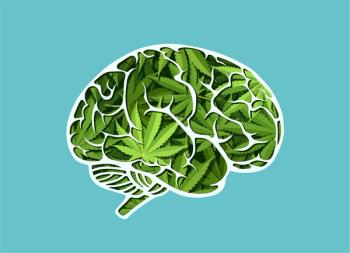
- July/August 2022
- Volume 3
- Issue 2
- Pages: 21-23
The Knox Docs Story: A Family of Endocannabinologists
Dr. Janice Knox discusses how she took a deep dive into medical cannabis, the formation of the famous Knox family of endocannabinologists.
Once upon a time, a newly retired career board certified anesthesiologist, Dr. Janice Knox, began getting into more natural medicines, using the natural curiosity that was always part of her 35 years of work as a doctor. She had married a doctor in 1977, Dr. David Knox, and their two daughters, Jessica and Rachel, would follow in their parents’ footsteps, leading them all to work with cannabis as medicine for better patient wellness.
Dr. Knox said that she was introduced into the cannabis space because she was invited to work at a clinic that wrote medical cannabis cards—cards that are issued by the government for those who qualify or have a medical condition. “At first I hesitated to do that because I absolutely knew nothing about cannabis,” she explained.
She had attended the University of California-Berkeley as an undergraduate in the 1970s, where the student culture included lysergic acid diethylamide (LSD) and cannabis as a key part of their social scene. “I absolutely knew nothing about cannabis, even after spending all those years at Berkeley,” she said. “So, I hesitated initially because of that.”
But she decided to go ahead and see who showed up to get their medical cannabis card—and it became a life-changing moment for her. “I was shocked by who I saw come through the door of the clinic, because they looked like everyday people. They were retired people, doctors, lawyers, grandmothers, grandfathers, parents bringing their babies, and parents bringing their teenagers. So, I’m going ‘Oh my god, who are these people?’”
It quickly became apparent to her that these people were spending their last bit of money for cannabis because conventional medicine had failed them. “I was so intimidated, or shocked, because here I was an anesthesiologist who knew physiology and pharmacology. But I couldn’t tell them a thing about cannabis.”
Invigorated by what she saw, and with her curiosity piqued, she then proceeded to dig into finding out what the cannabis plant offered. “When I found that information out, I was shocked at the medicinal benefits of cannabis. And then I dug into why it was banned,” she said. “When I read the congressional records, I was shocked again. And then I dug a little deeper because I liked looking under the hood, as it were. When I found the physiology that supported the use of cannabis, then I became a real advocate” (1).
Connecting the Dots
Then Dr. Knox started putting together the pieces of the puzzle about patient treatment from what she had witnessed as an anesthesiologist over her long career and began connecting the dots about the benefits of medical cannabis that would quickly build up her interest.
“Before I left my anesthesia practice, one of the final sights that sticks in my mind to this day is what the recovery room looked like,” she said. “There were patients who had been put on just tons of pain medications and were screaming for more. All I could think of is that what we’ve done is created drug-seeking patients. They came to surgery on these massive amounts of drugs and as an anesthesiologist, I had to juggle those medications, and keep them safe through all of this. I started thinking ‘Oh my goodness, what have we done here’?”
She said that she thought all medical professionals, including clinicians like her, and their patients, were trained in a certain way about pharmaceuticals and therapy for patients. “We all believe anything that comes from the pharmaceutical industry is okay to take,” she said (2). “But it can have a list of 50 side effects. I tell patients the further we move away from what’s natural, the more complications we’re going to see.”
Dr. Knox recalled a patient who called her and told her that her son was on a certain pharmaceutical drug. “We don’t like giving kids Paxil because it puts them in a dark place,” explained Dr. Knox. “But once again, we have been so brainwashed about what’s acceptable, that people are terrified of cannabis. We’re seeing great results and long-term results with cannabis. But you pose using cannabis to a patient, and they say ‘Oh, no, no, no, I can’t take that.’”
She believes that it’s about educating the public and educating clinicians. “We just have to think differently. And we’re just not there.”
Asking the Extra Question
Dr. Knox said that she has always been a disrupter, something she attributes to her educational fine-tuning at Berkeley where students are taught to be disruptive. They are taught to ask the extra question. “I’ve always looked at things like why a certain treatment or drug works. And why this treatment or drug isn’t working. So, I was already asking the extra question,” she said. “I knew that, with the conventional medical process as we know it, we’re not answering questions. I knew we needed to look elsewhere.”
Along her pathway to better understanding the benefits of cannabis as medicine, both her husband, Dr. David Knox (an emergency room doctor for more 40 years) and their two daughters, Dr. Jessica Knox and Dr. Rachel Knox (3), became convinced she was on to something important that impacted them all. “I told my husband that I’m a trailblazer. I always dance and walk to a different tune. And when he saw what I was doing, and the difference I was making with cannabis, he came on board. He was intrigued,” she said.
She thought that her daughters were thinking OK, there goes my mom doing something crazy again. “As far as using the cannabinoids, they began to understand it, and looked at what I was doing. Then they joined me,” she added.
Being people of color, she said, means that she and her family look at things a little differently anyway. “Why does cannabis work? And what makes it work? And then, we began learning about the endocannabinoid system.”
Taking the Deep Dive
She said that, in her deep dive to figure out more about cannabis—trying to understand why people would choose this plant and why it worked—she found out about the endocannabinoid system. “It is the backbone to which every other physiological system is based,” Dr. Knox said. “It is the system that keeps harmony and balance between all our physiological systems. We’re looking at receptors triggering downstream effects that cause a result. I was shocked. How did I learn physiology in medical school and didn’t learn about this system that controls all of that physiology I learned about?”
When looking at the bigger picture of the endocannabinoid system like she did, she said, she begin to understand that this really isn’t about cannabis. “It’s about our understanding that physiology, and how do we explain the function and dysfunction of that physiology?” she said. “And that is something that should always come first.”
That a-ha moment was the impetus for the development of Dr. Knox as an endocannabinologist, a term she coined—meaning a person who studies the function and dysfunction of the endocannabinoid system, and how to clinically apply what has been learned about cannabis and other botanicals as it pertains to the endocannabinoid system.
The Autoimmune System and Endocannabinoids
In discussing the autoimmune system, Dr. Knox has a very specific cannabis-angle viewpoint. “If we understand the things that throw the endocannabinoid system off, then you can start to apply the information that we need, right?” she said.
She explained that everything, regardless of the disease process, or the system that is being discussed, starts at the cellular and sub-cellular level. “The things that throw the endocannabinoid system off are genetics, the aging process, nutrition, pharmaceutical drugs, environmental stressors—these are all of the things that drove the endocannabinoid system off so it can’t do its job.”
The root cause of throwing off the endocannabinoid system can also be traced to the inflammation that we start to gather in our body “probably from day one,” she said, because of the world we live in. “A root cause of most disease processes, if not all, is inflammation. But that inflammation leads to other disease processes. How that disease is manifested depends on your genetics and the environment you grew up in.”
Some people may show cancer, others will show diabetes or an autoimmune disease. “What you try to do regardless of the disease process is to understand the root cause of disease processes,” she said.
According to a July 2021 study done by Italian researchers (4), the endocannabinoid system (particularly CB2 receptor activation) is a possible target for the treatment of inflammatory and the autoimmune diseases related to immune cell activation. The study concludes that: “In vitro and animal studies of multiple sclerosis have provided convincing evidence of the immunomodulatory properties of cannabis, although there is still a lack of clinical evidence from randomized and controlled clinical trials.”
In other words, what those researchers found out was just a start—there’s much more work to do.
If she is talking to somebody with an autoimmune disease, Dr. Knox said that she is going to look at what system is most affected. “For example: Is it the joint system? And then work from there to see which receptors are not working or which are overworking and see how to put a therapy plan or a treatment plan together.”
If she sees someone with breast cancer, she is going to treat that person differently than someone with an autoimmune disease (5), or with brain cancer, because different receptors are involved.
“Patients come in with this disease process, including autoimmune disease, whether it’s rheumatoid arthritis or psoriasis, or all kinds of things, such as inflammatory bowel disease,” Dr. Knox said. “We try to put the patient in the forefront of their therapy. We can only do so much as they will allow us to do or tell us about, and sometimes they don’t even understand why they’re getting sick.”
“So, if I’m treating someone with autoimmune disease, I want to know everything about them. I want to know what environment they live in. Is it a food issue or a water issue or an air issue? Is it a soil thing that has triggered their autoimmune disease? Is it stressors in your apartment? Is it financial stress, emotional stress, and what’s happening with their family or personal economics? That includes the medications they’re on, and how they relate to their doctors. All those things become so important, so that we can start to turn their health picture around.”
Even with a better understanding of the autoimmune system, today’s informed medical doctor sometimes still has to watch and wait—and hope—for their patient to improve. “I tell patients that none of us have that crystal ball to say how long you’re going to live, and when you’re going to die,” she said. “But statistics tell us that cannabis has a higher success rate with treating autoimmune issues than those of pharmaceutical drugs or the anti-cancer agents, and that those two working together—cannabis and pharmaceuticals—have a better outcome than any one individually.”
It’s Not All Cannabis
The key to helping patients is to tell them that it’s not cannabis alone. “We can’t just tell you to go out and buy these cannabinoids or these terpenes and it’s going to be okay,” Dr. Knox said. “A patient has to buy into every last bit of what the therapy is, including believing that they can heal. We’re so focused on illness and sickness and treating that sickness, and we’re not really focused on moving patients back to wellness. What cannabis has taught us is we need to look in other places and move patients back to wellness.”
A Bigger Commitment
The American Cannabinoid Clinics (ACC) (6), which were co-founded by Dr. Knox, her daughter Dr. Rachel Knox, and her husband Dr. David Knox, along with the organization’s CEO, her other daughter, Dr. Jessica Knox, was a clinic where these cannabinoid and endocannabinoid system specialists managed patients’ use of cannabinoid therapies, natural foods and supplements, and cannabimimetic practices (such as detoxification, oxygenation, yoga, meditation, and exercise) according to the underlying function or dysfunction of the endocannabinoid system.
The ACC was closed and rebranded as Pivital Health (7) last year, Dr. Knox said, which is an interactive education program in cannabis, cannabinoid medicine, and endocannabinology developed by her and her daughters—the so-called Knox Docs. “Patients come to us to get a deeper consult, such as an hour-long consult on occasion, instead of the 15-minute visit with a signature on a piece of paper so you can get your card, like we did at the ACC,” she said. “We will delve into what their health and their lifestyle has been. We delve into their disease processes.”
The patients can’t be given cannabis, but the clinicians at Pivital Edu can suggest certain terpene profiles or cannabinoid profiles.
More Education Is Needed
There needs to be a lot more education, Dr. Knox said, but medical practitioners need providers to understand not just tetrahydrocannabinol (THC) and cannabidiol (CBD), but why they are recommending it. “What do you hope to accomplish? And how do you use it? I want them to feel comfortable,” she said.
They must know the physiology that explains why cannabis works and why clinicians should consider these other ways of treating patients, whether it’s for post-traumatic stress disorder (PTSD), depression, or suicidal ideation. “They need to understand why we should be using cannabis perhaps instead of the pharmaceuticals,” Dr. Knox said. “I by no means am putting pharmaceuticals down. There’s a place for them. But there’s a place for botanicals as well, whether it’s Chinese medicine or Native American medicine. There are places in our health toolbox for all of these things, and we just need to be more open,” Dr. Knox added (8-9).
She thinks that clinicians and providers of all types need to feel like they’re not threatened if they talk about these other alternative medicines to their patients. “Cannabis can eventually be an everyday medicine, prescribed like an aspirin, if it’s clinically appropriate for patients,” she said. “I think clinicians and providers need to reset their brains as well, and consider using alternative care. It shouldn’t be at the end of life, for example, because your doctor can do no more for you. Is there a way we can incorporate plant medicine into our daily lives, so we even prevent getting or maybe stopping cancer? We need to change patients on what’s healthy, and how to stay well, instead of how to recover from sickness or how to manage sickness.”
Her advice for clinicians is to keep learning. “That’s why we have Pivital Edu. That’s why we’re cannabinologists. We’re going to talk from the science first and the physiology first. We want providers to at least know the rudimental stuff,” she said. “Be open to what really God gave us to use on Earth. Be open to what the Earth can provide for us and look at those things. Read about those things. Feel comfortable with those things and take charge of your health. That’s what I'd like patients to understand.”
References
https://alcoholpolicy.niaaa.nih.gov/about-cannabis-policy https://www.fda.gov/drugs/information-consumers-and-patients-drugs/finding-and-learning-about-side-effects-adverse-reactions https://doctorsknox.com https://www.ncbi.nlm.nih.gov/pmc/articles/PMC8313508/ https://www.hopkinsmedicine.org/health/wellness-and-prevention/what-are-common-symptoms-of-autoimmune-disease http://veteranscannabiz.org/american-cannabinoid-clinics/ https://www.pivitaledu.com/pages/cannabis-grand-rounds https://www.hopkinsmedicine.org/health/wellness-and-prevention/chinese-medicine http://www.shermanindianmuseum.org/native-american-medicine.html
Articles in this issue
over 3 years ago
Cannabis Patient Care July/August 2022 Digital Editionover 3 years ago
Research Overview: Cannabis and Autoimmune Disordersover 3 years ago
Cannabis for Autoimmune Disease: Benefits Beyond Symptom Relief?over 3 years ago
Patient and Activist Profile: Carla Basanteover 3 years ago
The Latest News on Cannabis and Autoimmune DiseaseNewsletter
Unlock the latest breakthroughs in cannabis science—subscribe now to get expert insights, research, and industry updates delivered to your inbox.




